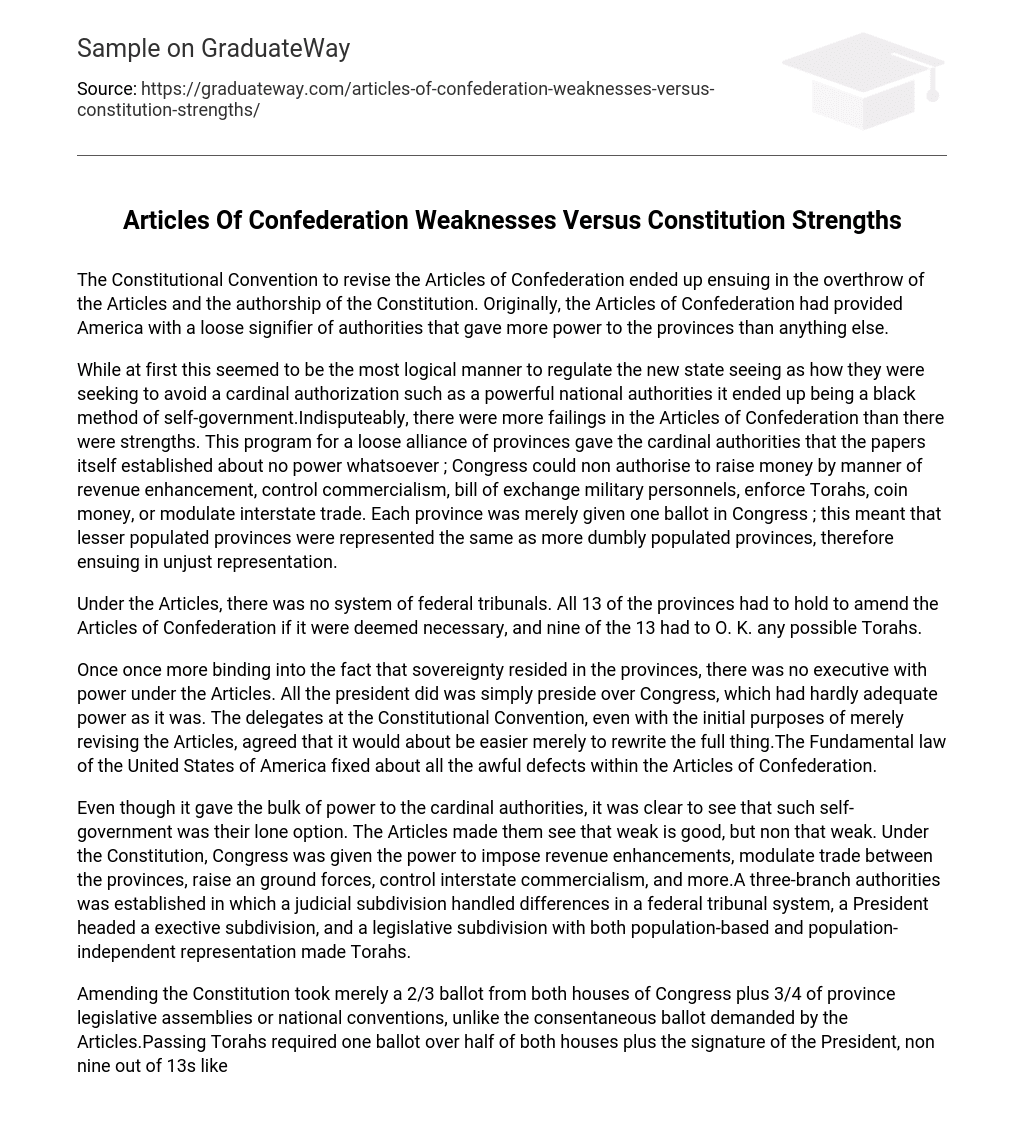The Constitutional Convention to revise the Articles of Confederation ended up ensuing in the overthrow of the Articles and the authorship of the Constitution. Originally, the Articles of Confederation had provided America with a loose signifier of authorities that gave more power to the provinces than anything else.
While at first this seemed to be the most logical manner to regulate the new state seeing as how they were seeking to avoid a cardinal authorization such as a powerful national authorities it ended up being a black method of self-government.Indisputeably, there were more failings in the Articles of Confederation than there were strengths. This program for a loose alliance of provinces gave the cardinal authorities that the papers itself established about no power whatsoever ; Congress could non authorise to raise money by manner of revenue enhancement, control commercialism, bill of exchange military personnels, enforce Torahs, coin money, or modulate interstate trade. Each province was merely given one ballot in Congress ; this meant that lesser populated provinces were represented the same as more dumbly populated provinces, therefore ensuing in unjust representation.
Under the Articles, there was no system of federal tribunals. All 13 of the provinces had to hold to amend the Articles of Confederation if it were deemed necessary, and nine of the 13 had to O. K. any possible Torahs.
Once once more binding into the fact that sovereignty resided in the provinces, there was no executive with power under the Articles. All the president did was simply preside over Congress, which had hardly adequate power as it was. The delegates at the Constitutional Convention, even with the initial purposes of merely revising the Articles, agreed that it would about be easier merely to rewrite the full thing.The Fundamental law of the United States of America fixed about all the awful defects within the Articles of Confederation.
Even though it gave the bulk of power to the cardinal authorities, it was clear to see that such self-government was their lone option. The Articles made them see that weak is good, but non that weak. Under the Constitution, Congress was given the power to impose revenue enhancements, modulate trade between the provinces, raise an ground forces, control interstate commercialism, and more.A three-branch authorities was established in which a judicial subdivision handled differences in a federal tribunal system, a President headed a exective subdivision, and a legislative subdivision with both population-based and population-independent representation made Torahs.
Amending the Constitution took merely a 2/3 ballot from both houses of Congress plus 3/4 of province legislative assemblies or national conventions, unlike the consentaneous ballot demanded by the Articles.Passing Torahs required one ballot over half of both houses plus the signature of the President, non nine out of 13s like earlier. While even the Constitution couldnt work out all the jobs of the Articles, it surely took attention of the huge bulk. Americans got used to the thought of swearing a cardinal power one time once more, even if it was what they were seeking to acquire off from being holding a revolution in the first topographic point.
Trashing the Articles and inventing a Fundamental law was the first measure in the right way in footings of American democracy and its hereafter.





